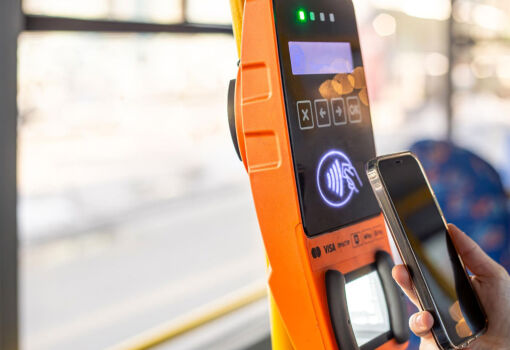
Financial literacy plays a key role in enhancing personal and community well-being. It helps people make informed decisions, avoid debt traps, and build long-term financial stability. Moldova, as part of the global community, is actively moving to improve financial literacy among the population, utilizing the best practices of other countries and its own educational initiatives. One prominent example was the National Forum on Financial Education, organized by the National Bank of Moldova with support from USAID.
Anca Dragu, President of the National Bank of Moldova, noted that financial education is a process that requires a systematic approach. She emphasized: “Every citizen should understand what interest, loans and savings are. This is the only way we can help people make informed financial decisions and avoid mistakes that can lead to debt problems”.
The forum attracted the attention not only of local experts, but also became a platform for sharing international experience.
The example of the UK shows how systematic inclusion of financial literacy in educational programs can significantly affect society. There, financial literacy has been a mandatory part of school education since 2014. Schoolchildren learn the basics of budgeting, analyze loans and learn to calculate long-term financial risks. This has helped to reduce debt among young people and increase their awareness of financial products.
Germany’s historical experience demonstrates how the country was able to build a savings culture after World War II. Massive state-supported education campaigns helped citizens understand the importance of saving. Today, Germany is one of the leaders in the European Union in terms of personal savings, which was made possible by the introduction of financial literacy at all levels of society.
Finland has integrated elements of financial education into basic school subjects such as math and economics. Pupils learn not only how to calculate interest and plan a budget, but also how to analyze investment opportunities. This enables young people to acquire practical money management skills from an early age.
Sweden, one of the most digital countries in the world, has emphasized the development of online tools to manage personal finances. Government platforms help citizens plan budgets, control spending and analyze credit offers. In addition, schools actively cooperate with banks, giving students the opportunity to learn the basics of saving and investing in a practical way.
In Japan, financial literacy is part of popular culture. Through films, television programs and government campaigns, conscious consumption and the need to save are promoted. Japanese schools introduce special subjects where students learn how to plan a personal budget and estimate the cost of credit. This helps build long-term financial stability from a young age.
Australia is another successful example of implementing a national financial education strategy. Media campaigns, educational seminars and interactive platforms help citizens better understand complex financial products and avoid budget management mistakes. In Canada, financial education is actively promoted through school programs that include stock portfolio management simulations to help students understand the basics of investing.
Irina Kitsu, a financial analyst from Romania, shared her country’s experience. “In Romania, financial literacy is a compulsory subject in schools from 2020. However, the foundation of financial discipline is laid in the family. Parents should explain to children how money works and show them examples of competent financial management,” she noted. She also added that her personal experience of saving became an important lesson for her: “When my husband and I started our life together, we agreed to save his salary and use mine for current expenses. This allowed us to save for our own home within a few years.
The National Forum in Moldova also focused on budget management techniques. Special attention was paid to the “50-30-20” method, which proposes to allocate income to basic needs, personal desires and savings.
Anca Dragu emphasized that one should save money immediately after receiving income, in order to avoid the situation when savings are put aside for later, but the money has already been spent.
Seasonal spending planning was also discussed at the forum. Christmas holidays and other major events are often the reason for overspending on the budget. “Holidays come every year, so it is wise to plan expenses in advance to avoid stress and debt,” suggested Irina Kitsu.
The National Forum became a launching pad for further financial education initiatives. International experience shows that long-term investments in this area bring significant results.
Anca Dragu emphasized that every banknote in the hands of a citizen is a symbol of trust in the country’s financial system. Moldova seeks to justify this trust by making financial literacy accessible to all its citizens.
It should be noted that the history of financial literacy dates back to the beginning of the 20th century. One of the first countries to introduce systematic education in finance was the United States of America. After the Great Depression of the 1930s, the U.S. government realized the need to teach citizens the basics of personal finance management. Programs were created to help people understand the importance of budgeting and saving. This experience became the basis for the development of the modern financial education system.
The European Union continues to develop initiatives aimed at improving the level of financial literacy. For example, in France, special platforms are being created to compare credit offers and calculate debt load. This helps citizens make more informed decisions when choosing financial products.
In Germany, financial literacy programs are adapted for all age groups, including pensioners, which contributes to increasing their financial independence.
South Korea also stands out for its experience. Here, financial education is included in school programs and is also supported by the corporate sector. Korean companies hold seminars for employees to help them better understand investments and retirement planning. This not only improves living standards, but also strengthens the country’s economy as a whole.
The National Forum in Moldova showed that the country is moving in the right direction. By combining international experience, expert opinions and innovative approaches, Moldova is creating conditions for increasing the financial awareness of citizens. This will be an important step towards sustainable development and well-being of each citizen.
However, additional steps are needed to improve the effectiveness of financial education. For example, creating mobile applications for education, developing games related to budget management, and organizing competitions among schoolchildren for the best financial strategy. These methods have already shown their success in a number of countries. In Poland, for example, the introduction of small business simulations as part of school courses has allowed students to better understand real economic processes and increase their interest in entrepreneurship.
One of the promising directions is popularization of family financial traditions. Italian experience shows that families that share a budget tend to spend more rationally and save more. Italian educational programs for adults actively include aspects of family financial planning, which allows solving not only individual but also collective problems.
In Moldova, as in other countries, there are many issues related to financial literacy to be addressed. However, initiatives like the National Forum lay the groundwork for significant changes. In the long run, this will help not only to improve the well-being of individual citizens, but also to strengthen the country’s economic sustainability.
https://youtu.be/F8ejs3ltteE?feature=shared

